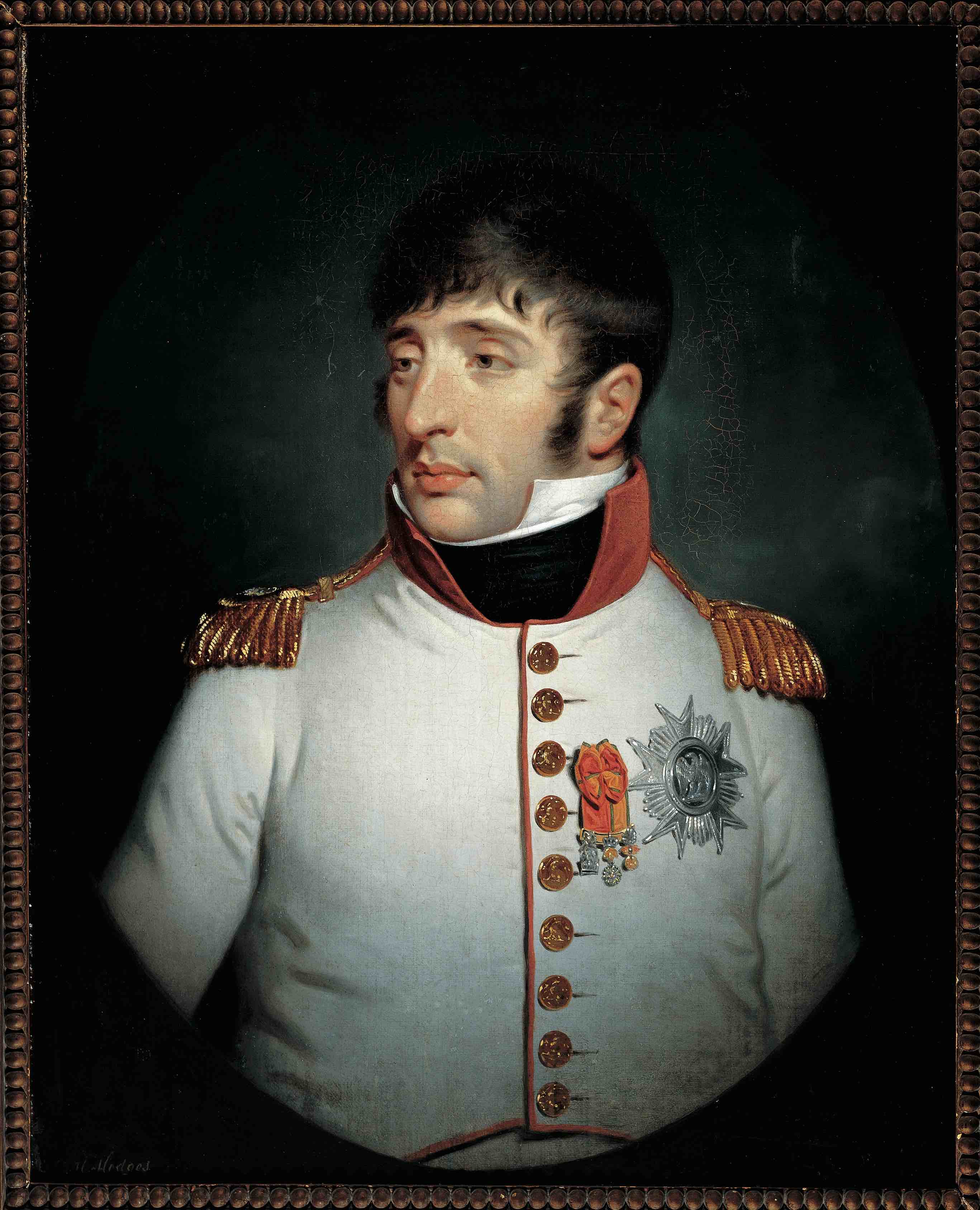Biography Louis Napoleon (1778-1846)
On 5 June 1806, the French emperor Napoleon appointed his nine-year younger brother Louis king of Holland. The Dutch Republic thus became, after more than two centuries, a monarchy. It has remained so ever since, which is the most important legacy of King Louis Napoleon. He himself soon lost the trust of his powerful brother. He fled the Netherlands in July 1810 like a thief in the night.

Since then, appreciation of King Louis has varied widely. In France, partly due to Napoleon himself, he gained a reputation as an unreliable weakling, fantasist, and bad husband. In the Netherlands, too, he has been described as a weak, wavering, and tragic figure. Yet he was mostly remembered as a man who was so at one with the Dutch that he clashed with Emperor Napoleon as a result - Louis' efforts to learn the language still appeal to the imagination. Recently, there has been a reappraisal, and he is even seen as one of the founding fathers of modern Holland. He succeeded in uniting his subjects around the throne and replacing old antagonisms with a national sentiment.
This changing assessment cannot be separated from shifting perspectives on King Louis and his era. Traditionally, much attention has been given to war, financial and economic policy and international relations, areas where he and the Netherlands were playthings of Napoleon. Later, under the influence of the 'cultural turn', interest grew in topics such as Louis' contact with his subjects, the way he presented himself, his performance in times of disasters and his commitment to art and science, religion, health care and charities. Partly because he had a decent mandate domestically, he still managed to make a mark on the Netherlands in his short reign.
This biography aims to bring these perspectives together in a new story about the Netherlands' first king. The key question is what drove King Louis. What guided him, on what did he base his choices, what inspired him? And what room for maneuver did he have? In doing so, this biography links up with historiographical debates about how 'French' the French era was, about how exceptional King Louis was within his dynasty and about how the Napoleonic system worked in practice.
For answers, two aspects in particular are studied that have remained underexposed to date. First, Louis's personal development. When he ascended the throne at the age of 27, he had gained experience as a military officer, prince Français and member of the French Council of State. This baggage colored his appearance in the Netherlands. It is notable, for instance, that he had the Dutch Council of State reformed on the French model shortly after his arrival. Personal preferences and experiences also seem to have played a role in areas such as poor relief, defense, legislation and art and culture.
Of great importance, in addition, is that Louis Napoleon belonged to a dynasty, the Bonaparte family, and ruled within the Napoleonic system. This not only meant that the emperor's wishes and expectations could not be ignored. Louis also maintained contacts with relatives elsewhere on the throne, such as his brothers Joseph (Naples, Spain) and Jerome (Westphalia) and his brother-in-law and sister Murat and Caroline (Naples). In areas such as Louis' public presentation, his court and relations with other monarchs, dynastic considerations presumably played an important role.
In short, by broadening the existing historiography to include Louis' personal development and international and dynastic ties, this biography aims to clarify what it meant that there was a Bonaparte on the throne in the Netherlands at the beginning of the nineteenth century, and what it meant that specifically this Bonaparte was on the throne.
This doctoral research is supervised by Prof. Joost Rosendaal (Radboud University, Nijmegen) and Prof. Hans Renders.
Pepijn Reeser (pepijnreeser@gmail.com) is a historian and exhibition maker. He worked for the Amsterdam Museum, the Nieuwe Kerk Amsterdam and the Dutch Open Air Museum and was a curator at the Limburgs Museum and the Nationaal Historisch Museum. He previously published, among others, a biographical study on former Surinamese coup leader and president Desi Bouterse.
| Last modified: | 31 January 2025 3.20 p.m. |
